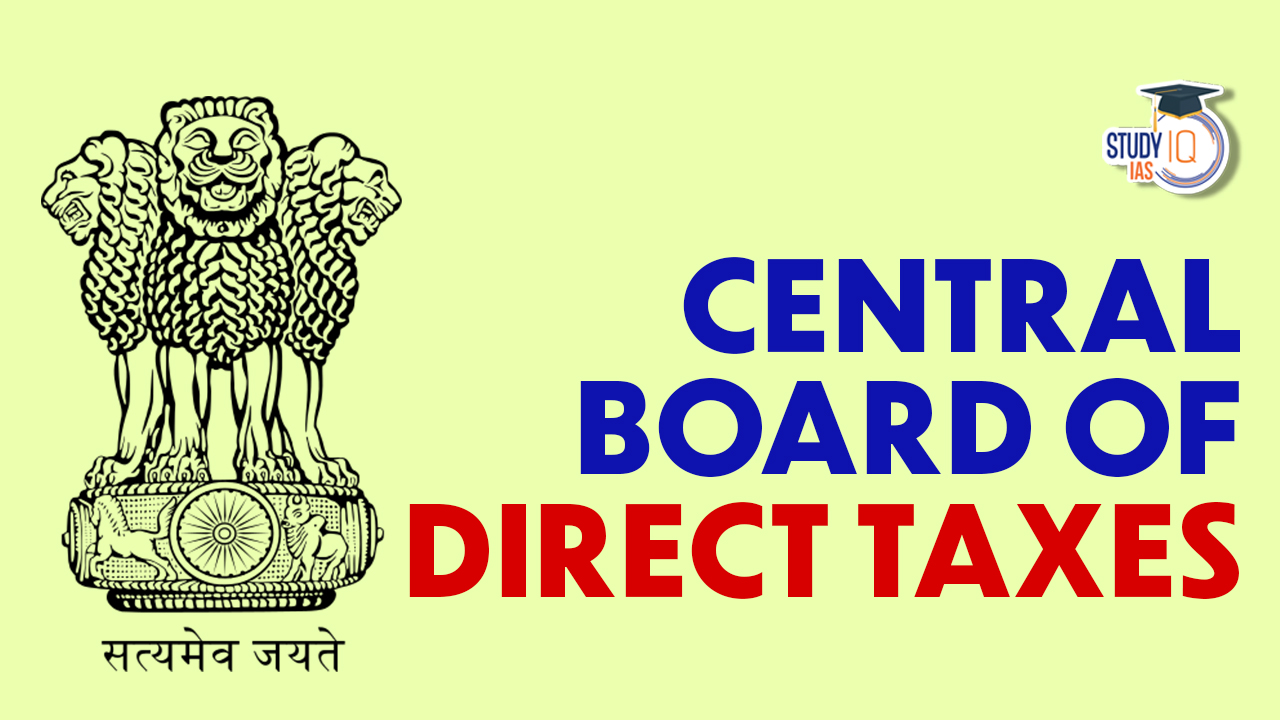Table of Contents
The Election Commission has directed the CBDT to verify any mismatch in the information provided in the affidavit filed by Union Minister and BJP candidate Rajeev Chandrasekhar as he contests from Thiruvananthapuram.
CBDT Released key Direct Tax Statistics through Time-Series Data
The Central Board of Direct Taxes (CBDT) consistently shares vital statistics concerning Direct Tax collections and administration with the public. As part of its ongoing commitment to transparency, the CBDT has recently unveiled updated Consolidated Time-Series data, covering up to the Fiscal Year 2022-23. Here are some important highlights from these statistics:
- Net Direct Tax Collections have surged by 160.52%, soaring from Rs. 6,38,596 crore in F.Y. 2013-14 to Rs. 16,63,686 crore in F.Y. 2022-23.
- Gross Direct Tax Collections have reached Rs. 19,72,248 crore in F.Y. 2022-23, marking a remarkable 173.31% increase compared to Rs. 7,21,604 crore in F.Y. 2013-14.
- The Direct Tax to GDP ratio has experienced an upward trajectory, climbing from 5.62% in F.Y. 2013-14 to 6.11% in F.Y. 2022-23.
- The Cost of the collection has seen a decline, accounting for 0.57% of the total collection in F.Y. 2013-14 and reducing to 0.51% of the total collection in F.Y. 2022-23.
- In terms of Income Tax Returns (ITRs) filed, the total number for F.Y. 2022-23 stands at 7.78 crore, reflecting an impressive surge of 104.91% from the 3.80 crore ITRs filed in F.Y. 2013-14.
Central Board of Direct Taxes (CBDT)
The Central Board of Direct Taxes (CBDT) is a statutory authority in India responsible for administering direct taxes and enforcing tax laws under the Department of Revenue, Ministry of Finance. It formulates policies, guides and supervises the implementation of direct tax laws, and ensures the fair and equitable collection of direct taxes, including income tax and corporate tax, throughout the country. The CBDT also functions as the apex body for the Income Tax Department and plays a crucial role in the assessment, scrutiny, and collection of direct taxes in India.
CBDT Full Form
The full form of CBDT is the Central Board of Direct Taxes which is a statutory body established under the Central Board of Revenue Act, 1963, in India.
Structure of CBDT
The structure of the Central Board of Direct Taxes (CBDT) in India can be described as follows:
| Components | Details |
| Chairman | The Chairman of CBDT is the highest-ranking official and serves as the principal advisor to the Government of India on matters related to direct taxes. |
| Members | The CBDT consists of several Members, each responsible for specific areas and divisions within the organization. These include:
|
| Directorates | The CBDT is supported by various Directorates that assist in specific areas, including:
|
| Regional Income Tax Departments | The CBDT operates through Regional Income Tax Departments located across different regions of India. These departments are responsible for tax assessment, collection, and enforcement activities at the regional level. |
The hierarchical structure of the CBDT ensures a clear division of responsibilities and effective administration of direct taxes in India, covering policy formulation, taxpayer services, legal matters, audit, investigation, and revenue collection.
Central Board of Direct Taxes Functions
The CBDT in India performs various functions to ensure the effective administration of direct taxes. These functions include:
| Function | Details |
| Policy Formulation | CBDT formulates policies and guidelines related to the administration and enforcement of direct taxes in India. |
| Tax Legislation | CBDT plays a crucial role in drafting and amending tax laws, including the Income Tax Act and other relevant legislation. |
| Taxpayer Services | CBDT is responsible for providing taxpayer services and initiatives to enhance compliance, facilitate the filing of tax returns, and address taxpayer grievances. |
| Assessments and Audits | CBDT oversees the assessment of income and the conduct of tax audits to ensure accurate reporting of income and compliance with tax laws. |
| Tax Collection and Recovery | CBDT monitors tax collection and recovery activities to ensure the timely and efficient collection of direct taxes. |
| Tax Investigation and Enforcement | CBDT is involved in tax investigation and enforcement activities to identify tax evasion, financial fraud, and non-compliance with tax laws. |
| International Taxation |
CBDT deals with matters related to international taxation, including cross-border transactions, transfer pricing, and double taxation agreements. |
| Legal and Judicial Matters | CBDT handles tax-related legal matters, provides legal opinions, and represents the Income Tax Department in tax-related judicial proceedings. |
| Computerization and Technology | CBDT focuses on leveraging technology for effective tax administration, including the implementation of digital platforms and systems. |
| Policy Analysis and Research | CBDT conducts policy analysis, research, and studies to assess the impact of tax policies and propose improvements in the tax system. |
Powers of CBDT
The Central Board of Direct Taxes (CBDT) in India possesses various powers to administer and enforce direct taxes. These powers include:
- Administrative Powers: CBDT exercises administrative control over the Income Tax Department and oversees its functioning at the national level.
- Rule-Making Powers: CBDT has the authority to make rules and issue guidelines for the implementation and enforcement of direct tax laws in India.
- Power to Grant Exemptions and Approvals: CBDT has the power to grant exemptions, relaxations, and approvals under certain provisions of the Income Tax Act, such as exemptions for charitable organizations or specific transactions.
- Power to Conduct Tax Audits: CBDT has the power to conduct tax audits, either through its officers or by appointing external auditors, to examine and verify the accuracy and compliance of tax-related information.
- Authority to Impose Penalties: CBDT can impose penalties for non-compliance, including the failure to file tax returns, underreporting of income, or any violation of tax laws.
- Power to Conduct Surveys and Search Operations: CBDT can authorize surveys and search operations to gather information, detect tax evasion, and seize assets by the provisions of the Income Tax Act.
- Power to Requisition Information: CBDT has the authority to requisition information, documents, or statements from individuals, banks, or other entities for tax assessment and investigation.
- Power to Make Appellate Decisions: CBDT exercises appellate powers to hear and decide on appeals filed against orders passed by income tax authorities, providing a higher level of scrutiny and resolution for tax-related disputes.
- Power to Enter into International Agreements: CBDT has the power to enter into international agreements, such as Double Taxation Avoidance Agreements (DTAA), to prevent double taxation and facilitate the exchange of information with other countries.
Central Board of Direct Taxes UPSC
Understanding the CBDT is crucial for UPSC aspirants as it falls within the scope of the UPSC Syllabus, specifically in the areas of the Indian Economy, Governance, and Taxation. The CBDT plays a significant role in the administration and enforcement of direct taxes in India, making it essential for aspirants to grasp its functions, powers, and structure. UPSC Online Coaching and UPSC Mock Test provide valuable resources for aspirants to enhance their understanding of the CBDT and its significance in the context of the UPSC examination, ensuring comprehensive preparation in areas related to taxation and governance.
| Other Important Articles | |
| Direct Benefit Transfer | Banking Ombudsman |
| Non-Performing Assets | Bad Bank |
| Gold Monetisation Scheme |
India’s GDP Growth Rate |
| Direct Benefit Transfer Scheme | RBI Monetary Policy |


 Top 10 Economies in the World 2025, Chec...
Top 10 Economies in the World 2025, Chec...
 Minors Bank Account above 10 Years: Chan...
Minors Bank Account above 10 Years: Chan...
 Creative Economy in India, Current Situa...
Creative Economy in India, Current Situa...





















